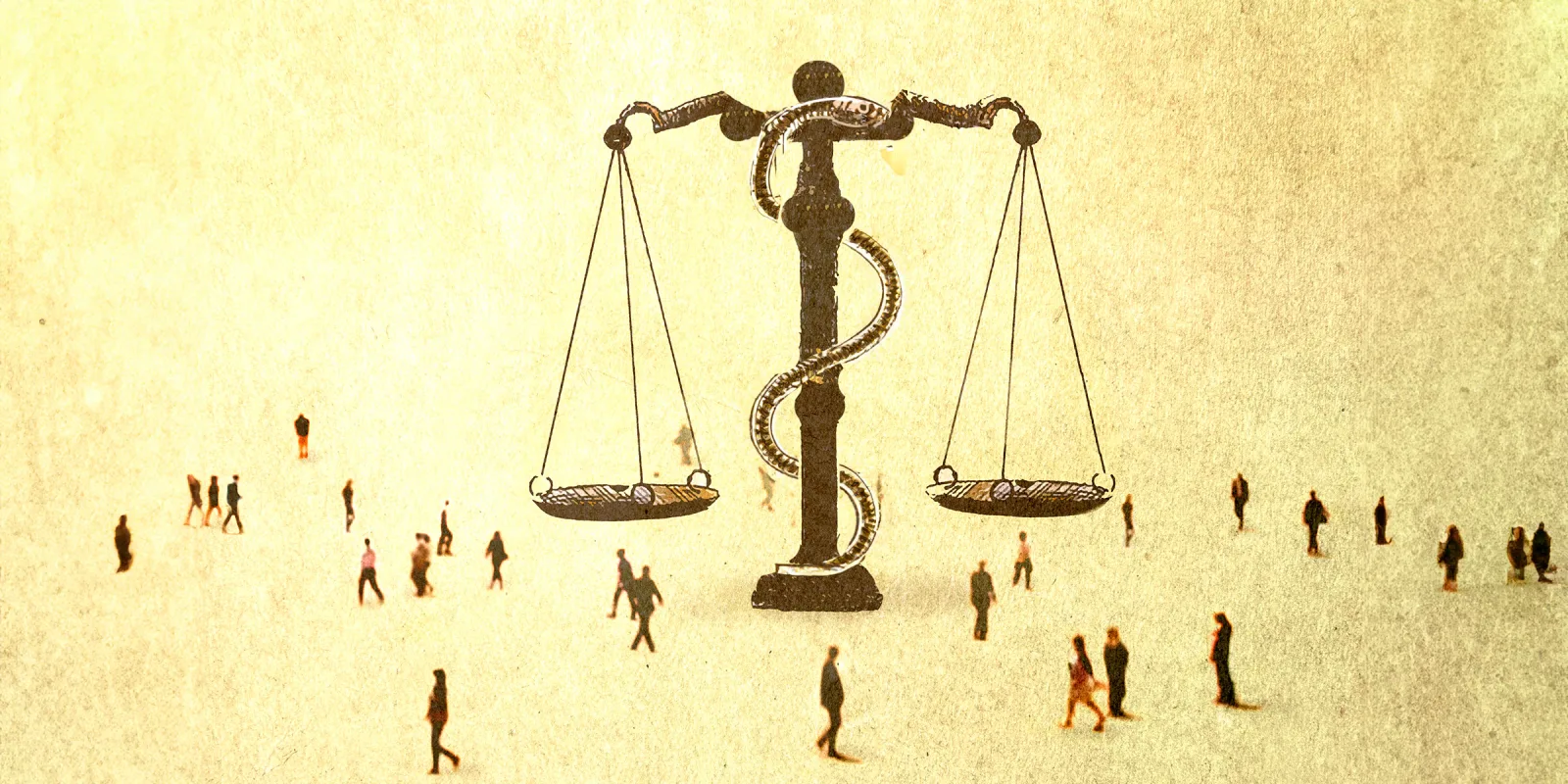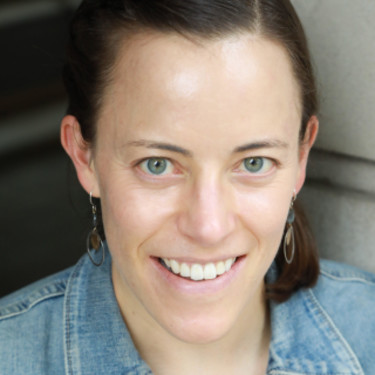As a young child, I resented when people would say that my hair was blonde — because blonde was associated with “dumb,” and I was a kid who thought of herself as the opposite. Growing up, I defined myself by my school performance. In kindergarten, I even cried the one day I had to stay home sick and later wrote a piece arguing against the existence of summer break.
As much as I would like to say that my drive to study hard and perform highly in school was entirely driven by an intrinsic desire to learn, we would all know I’d be lying. Society unequivocally rewards and celebrates intellectual achievement, and although I have always loved gaining knowledge, it is also clear that society’s preference for those who are “gifted” (aka ableism) played a role in my motivation as well. How could it not?
For much of my life, I was able to compartmentalize my drive toward intellectual achievement with my admiration for my brother, who happens to have an intellectual disability. Down syndrome is a label, diagnosis, and/or identity most notably defined by its deficits in intellect. So much so that it is a lifelong battle for people with Down syndrome to get others to recognize their humanity and personhood. However, as a sibling, in particular a younger sibling, I had the unique privilege of knowing my brother as an individual far before I had any concept of what Down syndrome is. Our shared experiences have shaped our relationship — from learning to walk together and squeezing into school bus seats side-by-side to housewarming celebrations, sporting events, and parent-free vacations. My brother’s naturally social and outgoing personality complements my quiet and reserved nature. He also always picks up on my stresses and anxieties, and he continues to be the best at pulling me out of my shell. As with any sibling relationship, we also still get under each other’s skin. However, the differences in our intellectual abilities have always been plainly unimportant and irrelevant to our relationship and intrinsic worth as human beings.
It didn’t take long to realize that society did not see our intellectual differences as unimportant. In school, we were both separated from the “normal” classes — I was in a “gifted and talented” class while my brother was in special education. Certainly, each student has different educational needs, but it was clear that this separation was not values-neutral. Even as a young child, it was obvious to me that the world treated my brother differently — with anywhere from pity to contempt. I remember that observing the way my brother and others with disabilities were marginalized troubled me deeply, and I wasn’t even the one experiencing that marginalization directly.
As I got older, my understanding of the different places we both occupied in the world became deeper and increasingly nuanced, although no less difficult to confront. Sometimes, instead of facing my discomfort, I just sought refuge in safe places, the ones that felt more accepting. At some point, I spent more time as a Special Olympics Unified Partner (a peer athlete who participates/helps in practices and competitions alongside athletes with disabilities) than as a general student athlete, and my own summer camp experiences were replaced by camps for kids and teenagers with disabilities. As I entered medical training, I hoped medicine would be a similar refuge — a place full of professionals motivated to help everyone access health and experience life to their fullest ability.
Unfortunately, the medical system and disability community have long had a tense relationship, and for good reason. Even in just a brief review of disability history you would find the eugenics movement, widespread institutionalization, oralism, and promotion of a medical model of disability, among other issues. There continues to be systemic discrimination and devaluation of the lives of individuals with intellectual disabilities and developmental disabilities (IDD) within the medical system. Some of the most notable examples are discrimination against individuals with IDD during the COVID-19 pandemic and in the organ transplant process. The medical system holds disproportionate power in its ability to label disabilities and steer treatments, which are often misguided and made without direct input from people with lived experience with intellectual disability. Further, medical schools are full of people who highly value intellectual achievement. This is a seemingly obvious connection, and society relies upon these strivers to care for us all. However, it is difficult for many to value intellect so highly and value those we diagnose as being less intellectually capable. Societal structures and values reinforce this ableist hierarchy, as is the case with any “-ism.”
In response to these observations, I would eventually create a medical career in serving those with intellectual disabilities. Through this work, I see the ways in which ableist hierarchies and biases impact the health and care of my friends, family members, and patients every day — from patients denied access to life-saving care, inappropriate and premature use of hospice services, hospital boarding, inordinate barriers to accessing mobility aids and other medical equipment, and the inaccessibility of our medical system, to name just a few. And yet, at the same time, I have had the privilege of hearing the many ways in which my patients are enjoying life — despite the assumptions among physicians that people with disabilities have lower quality of life. My patients share stories of adventures with friends and family, romances, work success and challenges, favorite books and movies, and athletic or musical pursuits. To me, it has always been clear that their lives are as fruitful, layered, and complex as anyone else’s, but sometimes a disability diagnosis gets in the way of the wider society recognizing it.
As much as a non-disabled person can, I live in the tensions between these two worlds. It almost need not be said that societally ingrained ableism impacts everyone, myself included. My hope is to contribute to an anti-ableist health care system, which focuses on the needs, goals, and perspectives of those with lived experience of disability. To do so, I recognize that I must start with myself and deeply examine the answer to the question: What does it mean to value intellect and intellectual disability simultaneously and equally? This is a critical question and ultimately a question about what it means to be human. As someone who cares deeply for many people with intellectual disabilities, it would be an easy reflection to dismiss, making it even more important not to. To me, there is no concrete answer to this question, it is just one I carry with me in everything I do. I anticipate my views and thoughts will evolve over time, but right now there are a few aspects of my reflection that resonate most. First, I focus on the process and experience of learning rather than on any accolades, titles, or outcomes of said learning. A love of learning is not dependent upon intellectual capability and can be enjoyed by anyone. Second, I focus on maintaining a genuine curiosity about how other people experience the world. I find this to be a critical skill as a physician in general, but I also recognize that my own view and perception of the world is limited. I strive to continually update and expand my own perspectives on the world, which relies upon others kindly sharing their opinions, views, and perspectives with me. It is just as important to seek out the perspectives of people with intellectual disabilities (directly from them), including those who do not use spoken language as their only or primary means of communication. Further, as humans we are all interconnected and contribute to the whole in unique and different ways. We should all seek to understand these connections more deeply and thus appreciate those who contribute to society in ways that do not result in traditional accolades.
Within medicine specifically, living out the truths of this question can enable us to adopt a more inclusive approach in our care. This can look like any of the following: challenging the traditional hierarchical and paternalistic nature of the medical system; ensuring that individuals themselves are the ones defining what quality of life means, what their health-related goals are, and what the system values; and speaking up when we witness ableism in our colleagues and correcting it when we witness it in ourselves.
As professionals, we are simply here to support this project of anti-ableism with the knowledge and tools we have. Achieving a truly anti-ableist health care system would require sweeping changes, directed by individuals with intellectual disabilities, in individual practice, health system structures, and health policy. The humility and creativity required to do so would benefit the entire system and community.
How has your own understanding of intellect and intellectual disability evolved over time? Share in the comments.
Dr. Emily Johnson is a family medicine physician who specializes in the care of adults with intellectual and developmental disabilities. She enjoys cycling, power lifting, language learning, and goofing around with her toddler. Dr. Johnson is a 2024–2025 Doximity Op-Med Fellow.
Image by Westend61 / Gettyimages







